The Ucicka Family
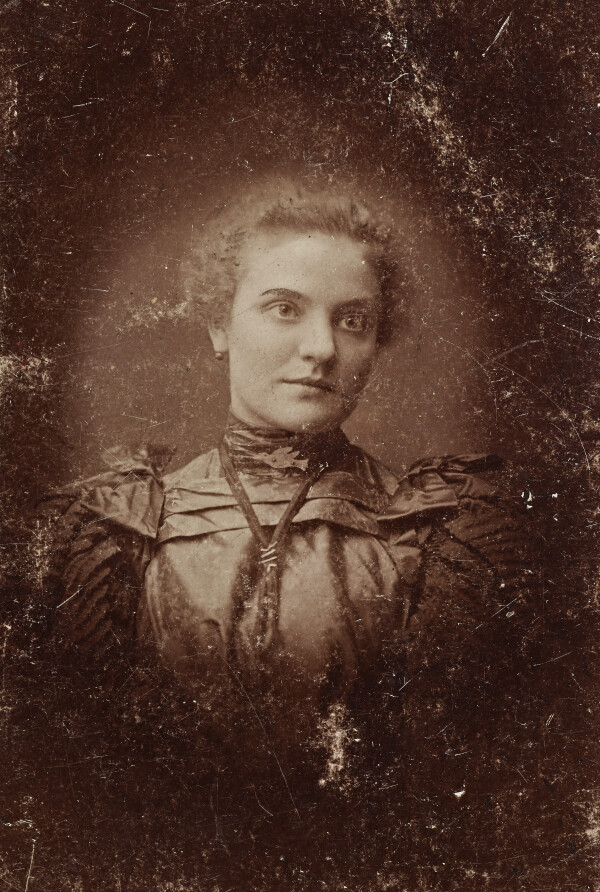
Maria Ucicka photographed by Albert Voisard, around 1899
© Klimt Foundation, Vienna
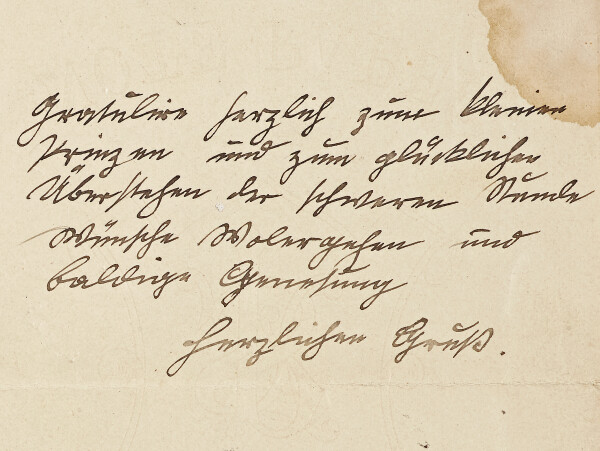
Gustav Klimt: Message from Gustav Klimt in Vienna to Maria Ucicka in Vienna, 07/06/1899, Klimt Foundation
© Klimt Foundation, Vienna
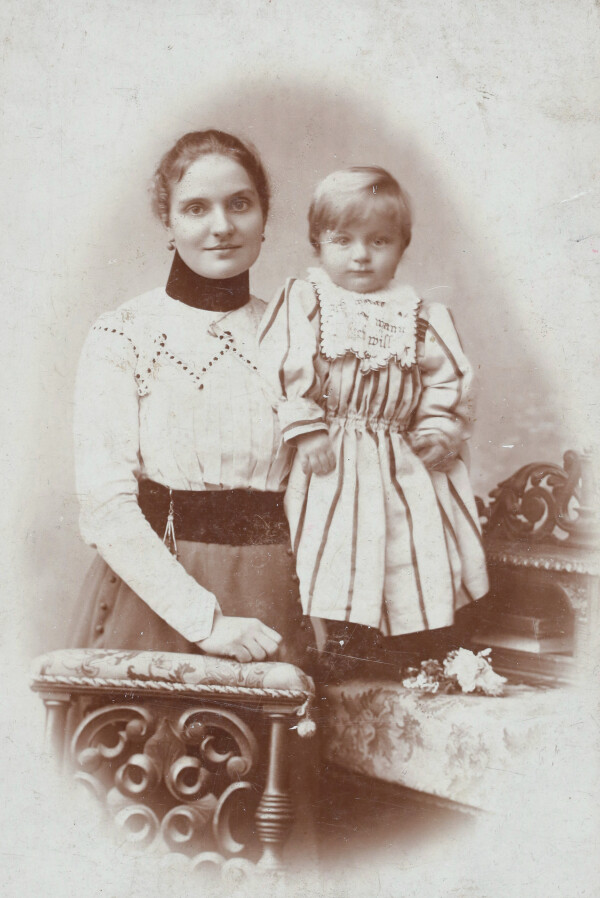
Maria Ucicka with her son Gustav photographed by Karl Strempel, around 1900, Klimt Foundation, Vienna
© Klimt Foundation, Vienna
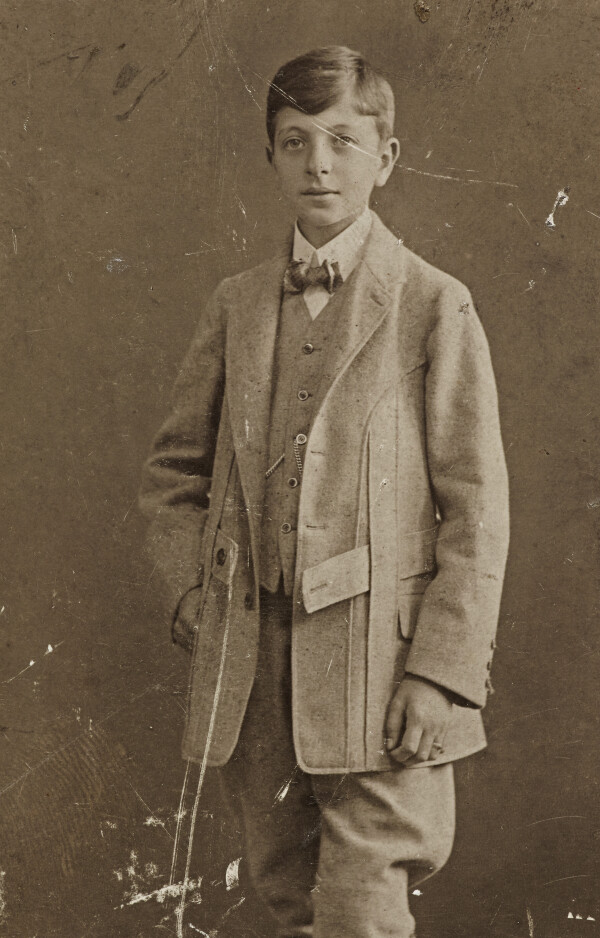
Gustav Ucicky photographed by Victor Angerer, around 1910
© Klimt Foundation, Vienna
Maria Ucicka was Gustav Klimt’s model and mistress. In 1899, she gave birth to the painter’s firstborn son Gustav Ucicky who went on to become a successful cinematographer and film director.
Maria Ucicka
Maria Ucicka was born on 9 July 1880 into an impoverished family. Having spent the first years of her life in the Bohemian town Karolinenthal (Karlin) near Prague, she and her mother, Theresia Ucicka, moved to Vienna before the turn of the century. In the imperial and residential capital, the two women carved out a living primarily as seamstresses and charwomen, though they briefly also ran a confectionary shop. According to reports from relatives, Maria Ucicka met Gustav Klimt in 1898 at the Dominican church in Vienna. Her extramarital relationship with the artist is documented by their son as well as by 68 letters written to her by the master between 1899 and 1916, while the drawing Portrait Study of Maria Ucicka (1898/99 (unfinished), Klimt-Foundation, Vienna, S 1989: 3315) and the painting Girl in the Foliage (c. 1898, Klimt-Foundation, Vienna) illustrate her role as Gustav Klimt’s model.
On 6 July 1899, she gave birth to their son Gustav. Klimt sent a congratulatory note to the young mother:
“Heartfelt congratulations on the little prince and on overcoming your hour of hardship. Wishing you health and a quick recovery. Warm regards.”
Over the years, there was little direct contact between the father, mother and son, aside from occasional visits by Maria Ucicka “with little Gusti” to the artist’s studios, as well as letters and picture postcards Klimt sent her. At least, the artist provided financial support to her and their son – as well as to Maria “Mizzi” Zimmermann and Consuela “Ella” Huber and their sons – by way of a monthly allowance. Following Gustav Klimt’s death in February 1918, Maria Ucicka raised further financial demands. Gustav Ucicky eventually received a one-off settlement in the amount of 4,000 crowns (approx. 8.000 euros). Maria Ucicka died on 4 January 1928. She was laid to rest at Hietzing cemetery, not far from Gustav Klimt’s grave.
Gustav Ucicky
Gustav Ucicky was raised in the knowledge of being Gustav Klimt’s illegitimate child. Though he kept his distance, we can assume that the painter partly paid for his child’s education. Gustav Ucicky appears in the 1907/08 grading catalogue of the Norbertinum, a boarding school in Tullnerbach near Pressbaum. From the middle of 1913, and likely through Klimt’s intervention, he began an apprenticeship with the Imperial-Royal Military Geographical Institute. From 1916, he started a career in the film industry. Ucicky worked for the film production company “Sascha-Film-Fabrik” and was one of several cameramen who captured the funeral of Emperor Franz Joseph I. In 1918, the year of his father’s death, Ucicky rose to the rank of official cameraman to the imperial family during their trip to Turkey.
In 1919, Ucicky sought to change his name to Klimt but, according to his recollections, this was prevented by members of the Künstlerhaus and the Vienna Secession:
“The Vienna Künstlerhaus and Secession promptly filed a petition in which all the artists and sculptors of the time protested against someone working in the film industry, and especially someone with the same first name, calling himself Gustav Klimt […].”
From 1921, he was head cinematographer at Sascha-Film, whose work was appreciated especially for its artistry. Towards the late 1920s, Ucicky embarked on a new path as a film director at the suggestion of his mentor Alexander Kolowrat-Krakowsky. Amongst his most famous films of this time is the silent film drama Café Elektric (1927) starring Marlene Dietrich and Willi Forst in their first leading roles. During World War II, he was tasked with directing National Socialist propaganda films. After the end of the War, he was initially banned from exercising his profession. After that, Ucicky directed mostly “Heimat” films but was unable to carry on from his previous success.
Throughout his life, he purchased works by Gustav Klimt to compensate for his hardly existent relationship with his father. Ucicky died on 26 April 1961 in Hamburg. He was laid to rest at Hietzing cemetery next to his mother.
Ursula Ucicky
The journalist and assistant director Ursula Ucicky (née Kohn) was born in 1922, the daughter of the Jewish cloth manufacturer Heinrich Kohn, in Cottbus. The racial laws introduced by the National Socialists led to the family losing their house and factory. After the War, Kohn lived in England and Israel, among other places. She returned to Germany in 1953. Three years later, she met her future husband Gustav Ucicky at a film premiere in Hamburg, and subsequently acted as assistant director to his films. Following Ucicky’s death, the remaining collection of Klimt works entered into the property of his wife Ursula. In 2013, she established the Klimt-Foundation, bringing the paintings and drawings that remained in her possession into a non-profit private foundation so that they may be researched and made accessible to the public.
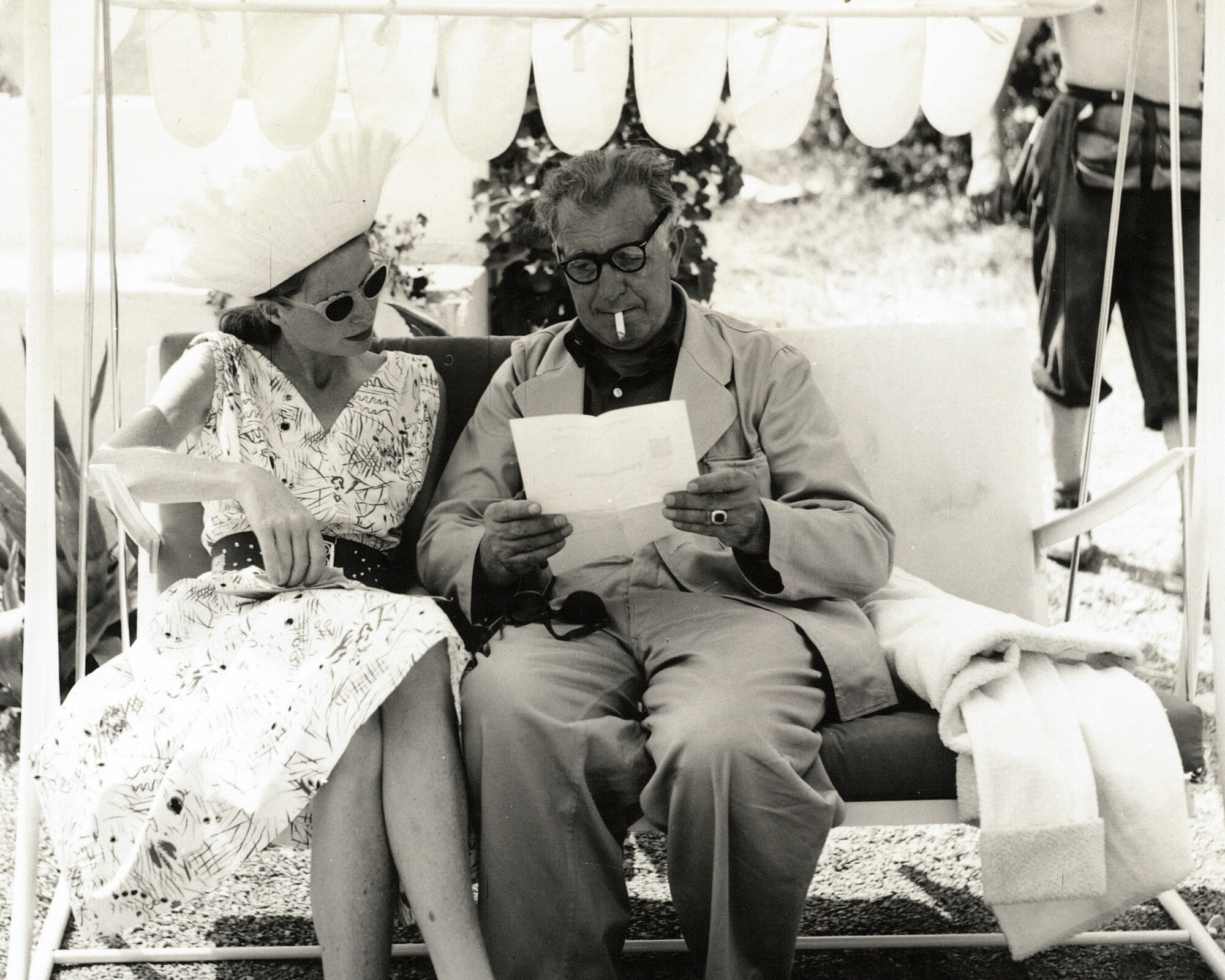
Gustav and Ursula Ucicky, around 1956
© Klimt Foundation, Vienna
Literature and sources
- Georg Markus: Klimts Schwiegertochter: „Der Name Klimt sagte mir nichts“. kurier.at/chronik/geschichten-mit-geschichte/klimts-schwiegertochter-der-name-klimt-sagte-mir-nichts/400430545 (04/22/2020).
- Sandra Tretter: Gustav Klimts Naturvision im Atelier und auf Sommerfrische, in: Sandra Tretter, Peter Weinhäupl (Hg.): Gustav Klimt. Florale Welten, Vienna 2019, S. 27.
- Armin Loacker: Ungleiche Verhältnisse. Über die Beziehung Gustav Klimts zu Maria und Gustav Ucicky, in: Sandra Tretter, Peter Weinhäupl (Hg.): Chiffre: Sehnsucht – 25. Gustav Klimts Korrespondenz an Maria Ucicka 1899–1916, Vienna 2014.
- Sandra Tretter: Parallele Welten. Gustav Klimts Korrespondenz an Maria Ucicka im Kontext gelesen, in: Sandra Tretter, Peter Weinhäupl (Hg.): Chiffre: Sehnsucht – 25. Gustav Klimts Korrespondenz an Maria Ucicka 1899–1916, Vienna 2014, S. 9-68.
- Sandra Tretter, Peter Weinhäupl (Hg.): Chiffre: Sehnsucht – 25. Gustav Klimts Korrespondenz an Maria Ucicka 1899–1916, Vienna 2014.
- Christoph Brecht, Armin Loacker, Ines Steiner (Hg.): Professionalist und Propagandist. Der Kameramann und Regisseur Gustav Ucicky, Vienna 2014.
- Brief von Otto Kiebacher in Wien an Maria Zimmermann in Wien (10/29/1919).

